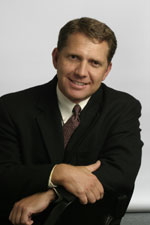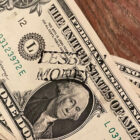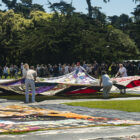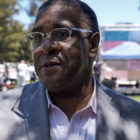A Southern California political scientist had a rocky time during cross-examination Monday and Tuesday at federal court in the trial to overturn Proposition 8, the measure passed by voters in 2008 that limits marriage to a man and woman.
Defenders of the ban on gay marriage opened their segment of the trial Monday with testimony by Kenneth Miller, a professor at Claremont McKenna College. He had testified early Monday that the gay and lesbian community has numerous allies and a great deal of power and influence. The pro-Proposition 8 legal team is taking issue with the challengers’ view that gays and lesbians are a persecuted and powerless group. The issue is whether the ban on marriage is unconstitutional discrimination.
The plaintiffs’ lawyer, David Boies, methodically cross-examined Miller to leave no room for ambiguity in Miller’s testimony. Boies took issue with claims regarding the depth of support religious coalitions provided gays and lesbians. Asked if these coalitions actually performed gay marriages in their churches, Miller hesitated.
He said he’d need to study that further and couldn’t say without looking more closely into that information. When pressed further, Miller responded that he thought one of these churches did and that another, the United Methodist Church, had gone back and forth on that issue.
Boies then took aim at Miller as an uninformed source who was unfamiliar with books and articles on the issue — he implied that Miller was citing literature spoon-fed to him by Proposition 8 supporters. Frustrated by what he saw as vague responses to specific questions, he asked Miller to go through the index of his report and mark which sources he had personally presented as source material without assistance from counsel.
Miller took about 20 minutes to review and mark up the index of materials, and Boies then questioned him further. The lawyer asked Miller how many of the 10 most populous states do not have statewide anti-discrimination laws for gays and lesbians, a question which Miller had failed to answer correctly in his deposition.
He was still unable to answer the question, though there was some cause for confusion.
Boies also asked Miller to name examples of legislation that involved cases of discrimination against gays and lesbians. Miller mentioned four or five cases, one by one, as Boies kept prompting him to provide more examples. When the U.S. military’s “Don’t ask, don’t tell” policy came up, Miller suggested — inaccurately — that it had already been repealed.
Under further questioning, Miller was unable to list any additional books or articles on the subject of discrimination against gays.
Amid further challenges to Miller’s expressed expertise on the subject, defense lawyer David Thompson objected to the line of questioning, arguing that the cross-examination was starting to “reach outside” the scope of the witness’ expertise. Some supporters in the audience actually guffawed — demonstrating their belief that Miller had been outside his area of expertise all along.
This story was updated for clarity on 1/27/10.










